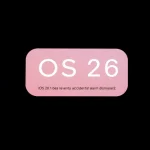Your favorite apps will work within ChatGPT changing your chats forever

OpenAI has kicked off its DevDay 2025, a highly anticipated conference for developers, with an announcement that promises to transform user experiences in conversational AI: your favorite apps will soon be integrated into ChatGPT. This new feature, referred to as Apps, introduces a software development kit (SDK) that allows various applications to operate seamlessly within the ChatGPT interface.
This innovation enables ChatGPT users to interact with popular platforms like Canva, Spotify, and Zillow directly from the chat environment, eliminating the need to switch between applications. Each app will be able to display its own interface within the ChatGPT conversation window, facilitating a wide range of actions as if users were operating each app independently.
During a live demonstration at the event, several compelling use cases were showcased. For instance, users can summon Canva by simply typing a command in ChatGPT, requesting the creation of a promotional poster for a new business venture. The results will appear right within the chat window, streamlining the design process.
Furthermore, users can ask ChatGPT for song recommendations tailored for a jog in the park, and Spotify will automatically generate a playlist with those songs, integrating the music selection directly into the conversation. This represents a significant leap forward in making interactions with AI more practical and enjoyable.
Integration of Third-Party Apps into ChatGPT's Ecosystem
The integration of third-party apps into ChatGPT will also introduce support for user authentication on these platforms. For example, if you subscribe to Spotify Premium, you will be able to log in directly through ChatGPT, accessing all the benefits associated with your subscription while chatting with the AI.
Sam Altman, CEO of OpenAI, mentioned during the presentation that the Apps SDK will provide "numerous monetization pathways", although he did not elaborate further on this aspect. It will be interesting to see how this development unfolds and whether OpenAI will take a share of the revenue generated through these integrations.
The Apps SDK is available for developers starting today in a preview mode. However, OpenAI has not specified a timeline for when this feature will be rolled out to the general public. The company aims to evolve the integration quickly to ensure it reaches users without significant delays.
Confirmed Applications for ChatGPT Integration
Among the first applications confirmed for integration with ChatGPT are Coursera, Booking.com, Expedia, Figma, along with the previously mentioned Spotify, Canva, and Zillow. OpenAI has promised that additional applications will be added in the future, including popular services like:
- Uber
- Instacart
- Peloton
- TripAdvisor
Altman also shared that by the end of the year, developers would have the opportunity to submit their applications for review and publication. OpenAI plans to launch a directory of approved apps that users can browse and explore through ChatGPT. Apps that meet the company's guidelines and demonstrate exceptional design and integration will gain more visibility and be recommended by the chatbot during user interactions.
How the SDK Enhances User Interactivity
The introduction of the Apps SDK not only enhances user engagement but also opens up new possibilities for business functionalities. With the ability to embed apps directly into ChatGPT, users can enjoy:
- Improved Workflow: Switch between tasks without leaving the chat interface.
- Real-Time Collaboration: Work on designs or documents collaboratively within the chat.
- Streamlined Access: Direct access to various services like travel bookings and music streaming.
This feature is poised to redefine how users interact with AI, making it a more integral part of their daily tasks.
Potential Challenges and Considerations
While the integration of apps into ChatGPT offers numerous benefits, it also raises some important considerations:
- Data Privacy: Users must trust that their data will be handled securely across different platforms.
- Quality Control: Ensuring that integrated apps meet OpenAI's quality standards will be essential.
- User Experience: The interface must remain intuitive, even as more apps are incorporated.
These challenges will require careful management as OpenAI rolls out this new feature to ensure a positive experience for all users.
Competitive Landscape: How Does ChatGPT Compare?
As ChatGPT expands its capabilities with app integrations, it enters a competitive landscape filled with emerging AI solutions. Users may wonder:
- What other AI applications can compete with ChatGPT?
- How does ChatGPT's integration compare to similar offerings from platforms like WhatsApp?
These questions highlight the importance of continuous innovation and user feedback in maintaining a competitive edge in the rapidly evolving AI space.
For those interested in exploring these new features further, a useful video is available that discusses the integration of ChatGPT with WhatsApp and the transformative potential it brings to messaging platforms. Watch it here:
As OpenAI continues to innovate with its Apps SDK, the future of AI interactions is becoming increasingly dynamic, promising new features that will enhance both personal and professional user experiences.




Leave a Reply